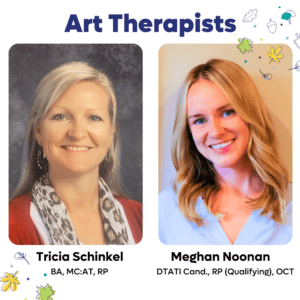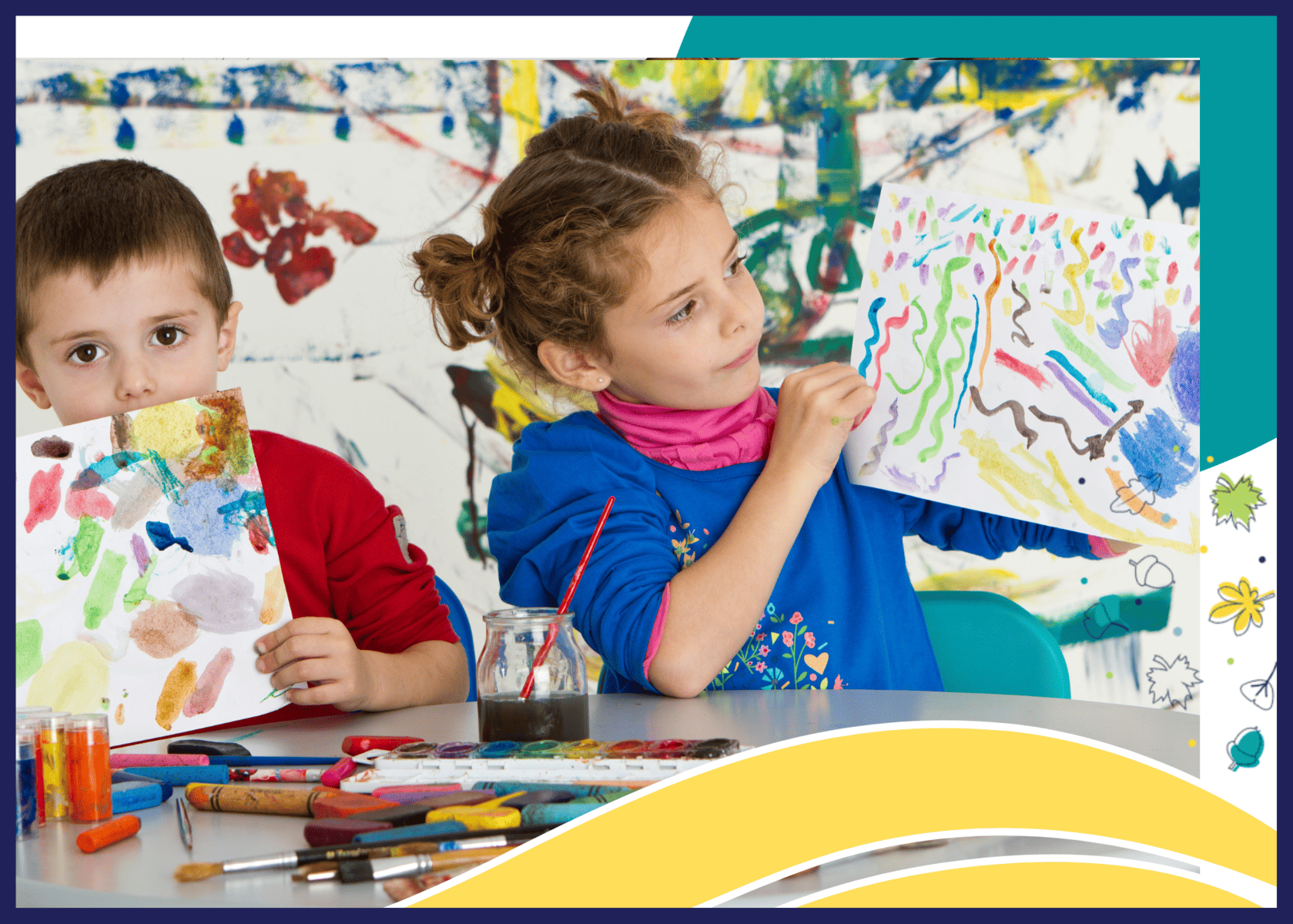Art Therapy
Art therapy is a unique form of therapy that combines the benefits of traditional talk therapy with the expression and creativity of art. It can be useful for children, youth, and adults who are struggling with a range of mental health issues, such as anxiety, depression, trauma, and behavioural issues. Art therapy allows individuals to explore and express their emotions through visual and creative channels, rather than solely relying on words or verbal communication.
The
Canadian Art Therapy Association describes Art Therapy as a combination of the creative process and psychotherapy, facilitating self-exploration and understanding.
Art therapy for children and youth
Children and youth often have difficulty expressing their feelings and emotions solely through verbal communication. They may not have the vocabulary or the confidence to express themselves verbally, or they may feel that their emotions are not taken seriously by others. This is where art therapy can be especially useful.
Through art therapy, children and youth can explore and express their emotions in a safe and non-judgmental environment. Art materials such as paint, clay, and collage provide a variety of options for self-expression. For example, children can use colours that reflect their emotional state, create a collage that reflects their growth, or use modelling clay to express their frustration or stress.
Art therapy can help children develop coping strategies by improving their communication, self-esteem, and self-awareness.
Children who may have difficulty with concepts such as trust or boundaries can explore these concepts through art in a fun and non-threatening way. They can develop new skills, find new interests, and experience a sense of accomplishment when they create something unique.
For adult clients too!
Expressive arts therapies can also be helpful for adults seeking to overcome mental health challenges. The creative process may be especially significant for adults who may feel that their words cannot fully express their experiences. Art therapy can provide a way to safely explore intense emotions and develop a new perspective on life.
Adult clients who have experienced trauma may find this form of psychotherapy to be particularly beneficial. Trauma often leaves individuals feeling powerless and out of control.
Art therapy allows them to take control of their feelings and channel them into something constructive. An
article in VeryWellMind referenced a study showing adults participating in Art Therapy experienced a significant reduction in trauma symptoms and decreased levels of depression.
Art therapy can help clients to develop a greater sense of self-awareness, self-esteem, and confidence. The creative process can help individuals to build a sense of accomplishment and self-worth. Clients can identify personal strengths and talents, as well as areas in which they need improvement. They can learn to take constructive criticism and maintain a positive attitude, even in the face of adversity.
What about techniques?
Art therapy can incorporate a variety of techniques, depending on the needs of the client and the therapist‘s approach. Some common techniques include:
- Drawing – this can involve freehand sketching or the use of guided prompts to elicit specific emotions or thoughts
- Painting – clients can express themselves through the use of colours, textures, and shapes
- Sculpture – clients can use clay or other materials to create three-dimensional art pieces
- Collage – clients can use found objects, magazine clippings, and other materials to create a visual representation of their thoughts and emotions
- Movement – dance and movement can be an effective form of art therapy, allowing clients to express themselves through physical movement and connectedness with their bodies
The benefits of expressive arts therapies
The benefits of art therapy for children, youth, and adults are numerous. Some of the benefits include:
- Encouraging self-expression: Art therapy provides individuals with a form of expression that doesn’t rely solely on verbal communication. This can be particularly helpful for children and youth who may have difficulty expressing complex emotions.
- Promoting self-awareness: Through this mode of treatment, individuals can develop a greater understanding of themselves, their emotions, and their needs. They may discover hidden strengths and talents that they did not know they possessed.
- Improving communication: Art therapy can be a non-threatening way to explore difficult topics. Clients can use their art to communicate emotions and experiences that may be too difficult or overwhelming to express verbally.
- Reducing stress and anxiety: Art therapy can provide a calming and therapeutic outlet for individuals experiencing stress or anxiety. The creative process can help to alleviate symptoms and promote relaxation.
- Building self-esteem: Artistic self-expression can help individuals develop a sense of achievement and self-worth. This can be particularly crucial for children and youth who may struggle with self-esteem issues.
- Encouraging problem-solving: Through the creative process, individuals can learn to approach problems in a new way. They may develop new skills and perspectives that can help them navigate challenges more effectively.
Expressive Arts psychotherapy is a unique and effective therapy approach that can benefit individuals of all ages who are struggling with mental health challenges. This can result in increased self-awareness, improved communication, and reduced stress and anxiety. This way of working can be particularly beneficial for children and youth who may have difficulty expressing themselves verbally. Expressive art therapies can also be a valuable approach for adults who are seeking to overcome mental health challenges and create positive changes in their lives.
We have two amazing Art Therapists at Acorn Counselling, and are pleased to introduce you to Tricia Schinkel and Meghan Noonan.







